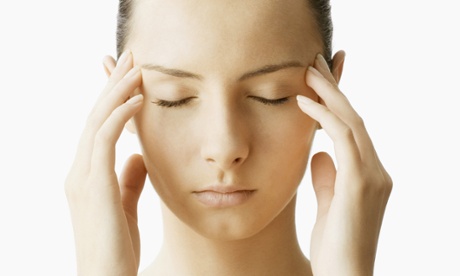
For the past couple of weeks my bra has been vibrating. It’s been a little embarrassing in some social situations: huddling for group photos was perhaps the most awkward.
It’s all down to a little chunk of plastic that monitors my stress levels and alerts me when I am tense, when I need to take a deep breath, or when I should move my legs. The little sensor, which clips to my bra and works by analysing my breathing patterns, is one of a number of de-stressing gadgets that I’ve become attached to (literally) over the past couple of months.
Any device sitting in my underwear didn’t get there by accident: it’s all been part of a work project. I present and co-produce Sky’s technology show, Swipe. Sometimes my job can feel a little hectic and I was starting to notice how frequently I had a churning stomach and found it difficult to get to sleep.
If only there was a gadget that could help me to switch off ...
So, for admittedly selfish reasons, I decided that we should dedicate an episode to looking at gadgets and apps that help us to relax. Since the episode aired, I’ve added even more to my new collection.
My little bra buddy is called Spire. The makers say it’s the first wearable to monitor breathing to track your state of mind. When it tells me I am tense, I can take some deep breaths or opt to listen to a calming audio recording. You can also set goals for how many minutes of calm, activity or focus you want to achieve per day.
Another of my mini anxiety warriors is the Inner Balance app by HeartMath. It involves attaching a clip to your ear that enables heartbeat tracking, whilst you follow on-screen prompts to moderate your breathing. The aim is to reach coherence: described as “a state of internal synchronisation between the heart, breath and the head.”
PIP, on the other hand, measures stress reactions via skin (electrodermal activity) as you hold it between your thumb and finger. The first time I tried this, the app told me I was 46% stressed despite the fact I was sitting comfortably on my sofa feeling very relaxed. Of course I jumped to the imagined conclusion my life was so stressful that even my baseline calm was too high.
Meanwhile, the Muse headband, which also syncs to your phone, is described as the mental equivalent of a treadmill, exercising and training your brain to become aware of your distractions. It feels a bit Star Trekkie with it wrapped around my forehead, and the initial experience was marred embarrassingly by the fact the app did not detect any brain activity in my head for about 10 minutes.
Using technology to help us relax might feel like a bit of a paradox. Some people find technology stresses the hell out of them and yet developers are offering us more of it to remedy the problem. But when I spoke to psychotherapist Dr Jo Gee, who uses meditation apps with some of her clients, it became clear that technology alone can’t solve the problem.
“At certain times, technology might not be available or appropriate, and so we need to develop our internal resources for stress management, engaging with the world around us, as well as with other people,” she told me.
When I contacted best-selling author John Gray, who has devoted the past two decades to researching mental health and its effect on our relationships, he told me that trying to balance a career and a personal life is more stressful than ever for women.
According to him, a way of helping ourselves feel better is to do things that stimulate a release of oxytocin.
“New research shows that the hormone oxytocin reduces stress for women … Any activity that a woman loves to do while she is not being rushed helps to produce oxytocin to lower her stress.”
Such activities include having a massage, talking to a friend on the phone, holding a baby or taking a scented bath (my favourite). So I spent an experimental day doing things I love, including having a long hot bath. Low and behold – I managed to achieve a score of 20% stress on my PIP, more than halving my previous score.
You could argue it’s the ritual of taking time to pause and breathe properly that is really the key to achieving results with a de-stress device, rather than the gadget or app itself. But with aspects like real-time feedback and vibrating notifications, I can’t help but find it pretty fascinating.
Hannah Robinson, from The Future Laboratory told me that in years to come, technology to help us handle stress will begin to feel more seamless and intuitive.
“Devices will feel less like a piece of hardware and more like an extension of the self,” she explains.
“We can expect to see technology emerging that harnesses the powers of scent, colour and sound to enhance our mood and optimise our wellbeing.”
Smells and colours are all very well, but now that my baths are increasing exponentially – can someone get a move on and develop a waterproof device, please?

